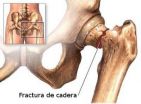(Press-News.org) Elderly patients with heart failure who need skilled nursing care after hospital discharge are often sicker, at higher risk for poor outcomes and are more likely than other patients to die or be rehospitalized within one year, according to research reported in Circulation: Heart Failure, an American Heart Association journal.
"Patients hospitalized with heart failure are high risk to start with," said Larry A. Allen, M.D., M.H.S., lead author of the study and assistant professor of cardiology at the University of Colorado-Denver School of Medicine in Aurora. "If they have to go to a skilled nursing facility, patients, families and providers shouldn't be under the impression that life will, necessarily, go back to normal. We should help patients and their families recognize this high risk and adjust their medical decision making appropriately."
Heart failure affects nearly 6 million Americans, and is the primary cause of hospitalizations among Medicare patients. Although many of these patients are discharged to skilled nursing facilities, the type of treatment they receive often varies.
A skilled nursing facility is similar to a nursing home, but can also provide specialized care, such as physical therapy, for patients unable to resume independent living. Skilled nursing patients may by nature face extra challenges, including less mobility, cognitive impairment or poor in-home support ― all of which are determinants to outcomes.
"We don't have a lot of data about the quality of care given in these facilities," Allen said. "This analysis highlights the need to better understand this unique group of patients and the care they receive.
Are they and their families getting information they need to make informed decisions on alternatives to care for short- and long-term prognosis?"
Allen and colleagues analyzed data on 15,459 Medicare patients ― enrolled in the American Heart Association's Get With The Guidelines®-Heart Failure program at 149 hospitals in 2005 and 2006 ― and discharged from the hospital after three or more days of heart failure treatment. Patients' average age was 80, most were white and 55 percent were female. The researchers found that:
About one-fourth of patients were discharged to a skilled nursing facility.
Thirty days post-discharge, 14 percent of patients discharged to skilled nursing facilities had died of any cause, compared to 4 percent of those who returned home from the hospital.
At one year, 54 percent of patients discharged to skilled nursing facilities had died of any cause, compared to 29 percent of patients discharged to home.
Furthermore, there was a higher rehospitalization rate among patients discharged to skilled nursing facilities. Thirty days after initial hospital discharge, 27 percent of patients discharged to skilled nursing facilities were rehospitalized for any cause, compared to 24 percent of patients discharged to home. One year after discharge, rehospitalizations were common in both groups, although the difference between them remained steady, with 76 percent of skilled nursing and 72 percent of home patients readmitted to the hospital.
Patients discharged to skilled nursing facilities were more likely than other patients to be older, female, hospitalized longer and to have other complications in addition to heart failure.
"Even after adjusting for patient differences, a strong predictor of mortality in the next year was discharge to a skilled nursing facility," Allen said. "This has important implications for talking to patients and their families during the initial hospitalization for heart failure.
They need to have clear expectations for survival and rehospitalization. Options for advanced therapies and end-of-life care, including hospice and advanced directives, should be discussed for these high-risk patients."
Skilled nursing use varied by region. The highest rate was in the northeastern United States, where nearly one-third of heart-failure patients left the hospital for skilled nursing facilities. The lowest was in the west, where about one-fourth required this type of care.
###
Co-authors are: Adrian F. Hernandez, M.D.; Eric D. Peterson, M.D.; Lesley H. Curtis, Ph.D.; David Dai, Ph.D.; Frederick A. Masoudi, M.D.; Deepak L. Bhatt, M.D.; Paul A. Heidenreich, M.D.; and Gregg C. Fonarow, M.D. Author disclosures and funding information are on the manuscript.
Get With The Guidelines®-Heart Failure is supported by an unrestricted educational grant from Medtronic, Inc.
Statements and conclusions of study authors published in American Heart Association scientific journals are solely those of the study authors and do not necessarily reflect the association's policy or position. The association makes no representation or guarantee as to their accuracy or reliability. The association receives funding primarily from individuals; foundations and corporations (including pharmaceutical, device manufacturers and other companies) also make donations and fund specific association programs and events. The association has strict policies to prevent these relationships from influencing the science content. Revenues from pharmaceutical and device corporations are available at www.americanheart.org/corporatefunding.
Elderly heart failure patients who need skilled nursing care often sicker, have poorer outcomes
2011-03-30
ELSE PRESS RELEASES FROM THIS DATE:
Moderate sleep and less stress may help with weight loss
2011-03-30
(PORTLAND, Ore.) March 29, 2011— If you want to increase your chances of losing weight, reduce your stress level and get adequate sleep. A new Kaiser Permanente study found that people trying to lose at least 10 pounds were more likely to reach that goal if they had lower stress levels and slept more than six hours but not more than eight hours a night.
The paper, published today in the International Journal of Obesity, was the result of a study funded by the National Institutes of Health's National Center for Complementary and Alternative Medicine.
Nearly 500 participants ...
Major report shows obese patients have double the risk of airway problems during an anesthetic
2011-03-30
A major UK study on complications of anaesthesia has shown that obese patients are twice as likely to develop serious airway problems during a general anaesthetic than non-obese patients. 'The airway' means the air passages from the outside world to the lungs, which must be kept open to keep the patient alive. The study also shows that the use of a simple breathing monitor, called a capnograph, could significantly reduce deaths and brain damage from such problems in intensive care units (ICUs); it found that absence of a capnograph contributed to 74% of deaths from these ...
Diabetes veterans may show ways to prevent complications
2011-03-30
BOSTON – March 29, 2011 – Over time, diabetes can wreak havoc on the body's eyes, cardiovascular system, kidneys and nerves. A major study by Joslin Diabetes Center researchers, however, has found that some people who have survived diabetes for many decades exhibit remarkably few complications—a discovery that points toward the presence of protective factors that guard against the disease's effects.
The scientists studied 351 participants in the Joslin 50-Year Medalist study, which examines people who have lived with type 1 diabetes for 50 years or more. Among this population, ...
UAB research targets way to stop brain tumor cell invasion
2011-03-30
BIRMINGHAM, Ala., - Gliomas are brain invaders. A kind of malignant tumor cell, gliomas branch out like tendrils from a central tumor source, spreading cancer throughout the brain. Traditional therapies, such as cutting out the tumor surgically, can be ineffective if the cells have already spread. Researchers at the University of Alabama at Birmingham may have come upon a way to stop a glioma invasion in its tracks, using a drug already approved for use in Europe.
Much like early explorers of the Old West followed rivers and streams, depending on them to provide drinking ...
Mothers abused during childhood at risk for having low birth weight babies
2011-03-30
Mothers who were maltreated as children have increased risk for giving birth to low birth weight babies. The findings, by researchers at the University of Washington, are the first to show that maternal maltreatment can affect the health of offspring.
The study also finds that childhood poverty and substance use during adolescence and pregnancy contribute to low birth weight, which is linked to infant mortality and chronic health problems.
"Our findings suggest that a mother's economic position in childhood and her experience of maltreatment during childhood have implications ...
Babies who sleep with smoker parents exhibit high nicotine levels
2011-03-30
"Third-hand smoke" stuck to skin or clothing is responsible for the high nicotine levels seen in babies who share a bedroom with their smoker parents. This is the conclusion of a study carried out in Catalonia, which also shows that ventilating bedrooms is not effective in reducing the levels of toxins from passive smoking.
"Passive smoking is the leading preventable cause of childhood death in developed countries", Guadalupe Ortega, lead author of the research study and coordinator of the Atenció Primària Sense Fum programme at the Department of Health of the Generalitat ...
MedWOW Upgrades Sales Leads Program
2011-03-30
MedWOW.com, the multilingual, global online marketplace for medical equipment, announces the launch of their upgraded sales leads program. All of the business leads generated are pre-qualified, registered buyers, looking for services and devices the merchants are offering. More than 10,500 medical equipment professionals visit the MedWOW site daily and transactions occur quickly and on a regular basis, so leads are kept fresh and current.
When purchasing leads credits, dealers now have the option of choosing money-saving discounted packages. The larger the package of ...
Free phone app helped doctors perform better in simulated cardiac emergency
2011-03-30
Doctors who used a free iPhone application provided by the UK Resuscitation Council performed significantly better in a simulated medical emergency than those who did not, according to a study in the April issue of Anaesthesia.
"Every year approximately 30,000 people in the UK have an unexpected cardiac arrest in hospital and, despite significant advances in resuscitation research, survival rates for adults suffering a cardiac arrest remain poor" says Dr Daniel Low, the consultant anaesthetist who developed the application.
"More than 60,000 free copies of the iResus ...
Spiders target sexy signals from 'vibrating' insects
2011-03-30
Insects using vibration to attract a mate are at risk of being eaten alive by killer spiders, Cardiff University scientists have discovered.
Studying spider behaviour experts from Cardiff University's School of Biosciences found that the vibrations used by leafhoppers and many other insects to attract a mate can be intercepted and used by predatory spiders to identify their prey.
Predators are already known to exploit the sight, sound and smell communications of their prey – but this is the first time that scientists believe they have discovered predators such as ...
Gene combinations are found to be related to hip osteoporosis in postmenopausal women
2011-03-30
This release is available in French and Spanish.
Women with osteoporosis in their hip suffer menopause two years earlier than healthy women, a study conducted at the University of Granada says. Additionally, although further study is required, researchers have found at least three genetic markers associated with osteoporosis in the hip in postmenopausal women.
Osteoporosis in the hip increases the risk of suffering fractures, which is extremely disabling for the patient, and represents a high cost for the health public system. The aim of this research study developed ...



